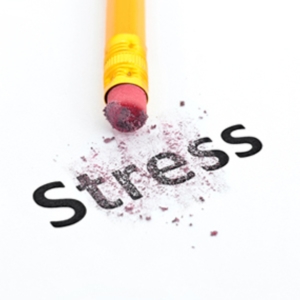If you’re job searching, you are probably stressed. That’s ok. It’s stressful because there is a lot at stake. When not in a job you need an income, you want to find the right job for you, the right company, a company where you have opportunities. You are looking for the right fit that will improve your life.
It’s not for nothing that they say looking for a new job is an actual job. A lot of time goes into the whole process of writing a CV, cover letter, applying for jobs, interview prep, interviewing etc. It doesn’t matter what industry you work in, how much experience you have or what level you work on. Most job seekers experience some form of stress during their job search.
Take a deep breath and relax, there are ways around the stress, especially if you know the main causes. Therefore, we will look into reasons that can cause stress during job hunting and what measures can be taken to combat stress and get the job you want.

Control
It starts with control. As an individual you don’t have much control, or better said, no control over the recruitment process.
You apply for a job and never hear anything back or you just get a vague rejection saying you are not the right candidate for the job. Then there is also the competition. You have no idea who you are competing to. Do they have more experience? Do they have a better skill set than you? You don’t know. And when finally, being at the interview stage, the hiring manager or HR manager keeps you in the dark.
With job hunting you also need a little bit of luck. There are so many uncontrollable factors and events that can happen, that you need luck on your side for everything to fall into place.
Rejections and negativity
It all starts with turning negative thoughts into positive ones and deciding to take control for yourself, rather than letting your anxiety or negativity control you.
Having no control of the recruitment process is just one example that can cause stress during your job hunt and will distract you from your goal. You are focused to work towards your goal and when it’s all not going as you hoped for, disappointment kicks in and your focus gets blurred. This might affect your interview prep and your focus during the actual interview. Answering questions with thoughtful and intelligent responses gets harder and as a result the amount of rejections increases.
Rejection after rejection is very discouraging and you start to think about the things that went wrong instead of what you did well. Negative thinking has a big impact on how you feel and will only push you away further from your goals.
The solution with cutting out negative thinking is decreasing negativity and investing time in what will increase your job search effectiveness with i.e. physical exercise, a good diet and a good night sleep. These three examples are extremely important when it comes to managing stress.
Thought is key! If you can change your mind, you can change your stress levels and increase your ability to find the right job.

Now that we have had a look at a few factors that affect your job search, we will now look into how to reduce stress as much as possible.
#1 Writing comes first
It’s logical to first write a good CV before you start applying for jobs. A well written CV is an important part of your search. But it’s also just one component of the whole process. Get it done properly, write several CV’s if necessary and then move on to the next step, a cover letter.
Many companies don’t ask for cover letters anymore, but it’s good to have one ready for when you need one asap. Because writing a good cover letter takes up a lot of time. Focus in your cover letter on what you can do for the company and back it up with claims of previous experience and relevant skills. You need to get across that you can get the job done, first and foremost. You can worry about explaining your past and future career plans when you get invited for an interview.
It takes quite some time to write a good CV and cover letter, but having a strong CV and cover letter ready to send out is already a weight of your shoulders.
#2 Focus on the solution
It’s important to focus less on the problems that come on your path in your job search and put your energy in possible solutions instead. As an example, if you are not getting much positive response from your current CV and cover letter, change it. Play around with your CV and send out different versions and track which one works best. Do you lack important skills? Focus on your self-development to gain the necessary skills that make you more attractive on the job market. There are many (free) tutorials and courses available online to grow your knowledge on specific subjects.
#3 Be patient and use your time wisely
It would be amazing if you scored an interview after the first job application you sent out, but that’s not very realistic. Patience is a virtue.
Use your time wisely. Set up job alerts at job boards, so suitable opportunities come to you. Don’t apply at random. Research companies you would like to work for and find out via i.e. LinkedIn who the person is to reach out to. Network in person, via LinkedIn or other social media sites and reach out to the right people. Remember that even via social media you still need to address people in a formal manner.
#4 Create a schedule
The whole process of applying, revising your CV, interview prep and repeat can become very monotonous, unfulfilling and time-consuming. It’s easy to start feeling overwhelmed by the seemingly nonstop loop. That’s why you need to make a schedule. Create a job search schedule you can stick to. Set aside a specific period of time where you will work on your job search. Make a detailed checklist on which you can mark off completed to-dos (ticking a completed task always feels good). This will help to control the process better and keep you from feeling as if you’re looking for a job 24/7.
#5 Stay active
One of the best remedies for stress or anxiety is to keep doing activities that you enjoy. When you make your job search schedule, also plan in time to meet up with friends for lunch, drinks or other activities.
As mentioned before, physical exercise is good for you as well. The release of endorphins will help keep your emotions in check. Physical activity also improves sleep quality and increases sleep duration. Exercise may also bolster sleep in other ways, because it reduces stress and tires you out. Getting enough sleep is crucial to reducing stress and anxiety.
#6 Fake it till you make it
Don’t feel confident that you are better than the competition? Exude confidence during the interview. Prepare well for your interview, have a story ready to tell, present yourself in a professional manner and close the interview well. If you have done all of this, you are already ahead of the competition.
#7 Persistence
At the beginning of your job search you are enthusiastic and putting in a lot of effort into finding a new role. After a few weeks you start slowing down because lack of response or rejections. Stay consistent! Keep networking and pursuing opportunities and bring your best self to interviews. Tip: see job hunting as dieting. It will only work if you keep working on it.
Now stop stressing, and focus on your end goal, finding the right job for you.
Want to read more? Read our blog about how to deal with rejection after an interview
